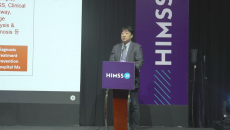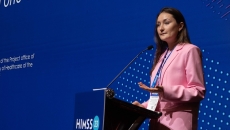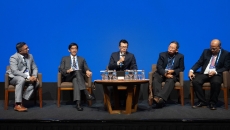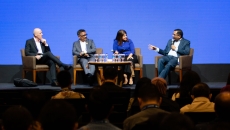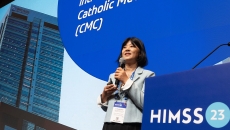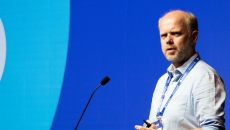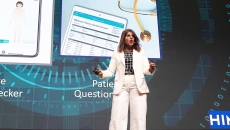HIMSS23 APAC
HIMSS23 APAC
Cooperation is key to the successful implementation of new technologies such as AI for improving care, said Prof Ho Young Lee of Seoul National University Bundang Hospital.
SPONSORED
HIMSS23 APAC
Dive into the transformative power of AI in modern medicine. Explore the shift from traditional methods to advanced systems and the enduring relevance of existing health record systems. Discover how GenAI is shaping the future of healthcare and research.
SPONSORED
HIMSS23 APAC
Interest in the pre-conference FHIR workshop exceeded our expectations, and we also saw significant developments in digital twins, emerging technologies, and generative AI.
HIMSS23 APAC
This session delved into birthing pains the Regional Clinical Hospital in Tatarstan went through to achieve HIMSS Stage 6 EMRAM.
HIMSS23 APAC
Home hospitalisation, tech-enabled preventive care, and genomic data-driven personalised care are some of the emerging trends in care in the Asia-Pacific region.
HIMSS23 APAC
Health CIOs shared outcomes, considerations, and success factors in implementing new technologies to advance care.
HIMSS23 APAC
This HIMSS23 APAC session put a spotlight on the hospital's recent digital transformation journey.
HIMSS23 APAC
If they want to apply these models, it has to be hosted locally to preserve data integrity, said Dr Roel Bolt, CMIO of Franciscus Hospital.
HIMSS23 APAC
Gareth Sherlock, former CIO of Cleveland Clinic London, shared their lessons from setting up a fully digital hospital in a new city.
HIMSS23 APAC
Dr Tamara Sunbul of Johns Hopkins Aramco Healthcare talked about the promising application of gene editing in healthcare but also cautions on uncertainties.
